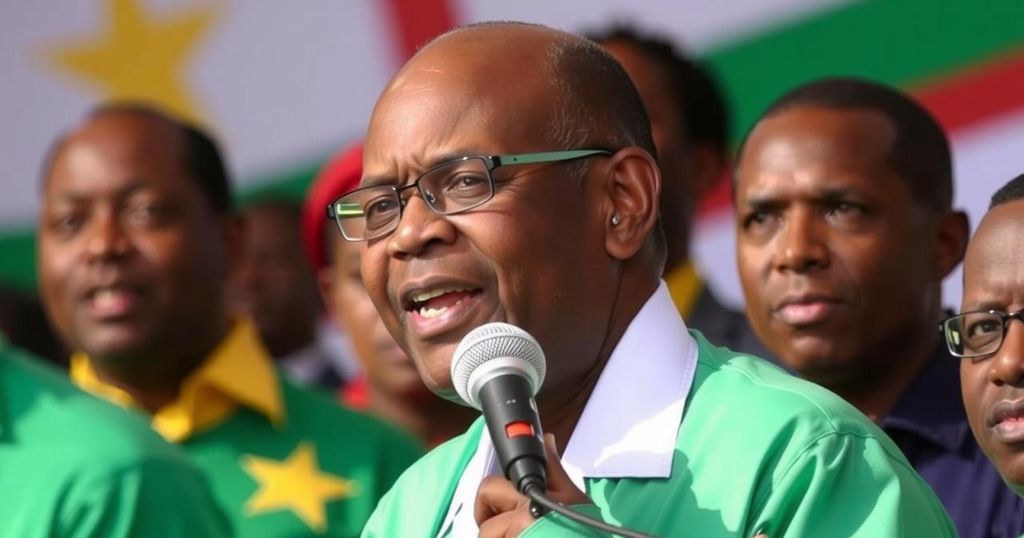Chad’s Ruling Party Secures Majority Amid Opposition Boycott in Elections
Chad’s ruling party secured a majority in parliamentary elections boycotted by the main opposition. This election, part of the nation’s democratic transition post-Idriss Deby, was criticized by opposition parties. The electoral process raises questions on legitimacy amidst rising security threats in the region.
In a recent parliamentary election characterized by a notable boycott from the principal opposition, Chad’s ruling party has emerged with a decisive majority, according to provisional results. This election was reportedly the final stage in the nation’s transition to democracy following Mahamat Idriss Deby’s ascension to power as a military leader in 2021. This shift occurred after the passing of his father, the longstanding president Idriss Deby Itno, who had governed Chad for three decades. Deby framed the election as a crucial step towards decentralization and the distribution of political power across various local levels of government.
The recent electoral process included regional and municipal elections; however, it was marred by the withdrawal of over ten opposition parties, prominently featuring the Transformers party led by Succes Masra, who was the runner-up in the previous presidential contest. The opposition had condemned the election as a mere façade, expressing concerns that it would replicate the inadequacies observed during the disputed presidential elections, which had raised significant credibility issues among observers. No immediate commentary has emerged from the opposition regarding the provisional election results.
This electoral event arrives amid a turbulent period for Chad, grappling with significant security threats from militant groups such as Boko Haram as well as a severing of longstanding military relations with France, an essential ally. As such, the election results not only contribute to the consolidation of President Deby’s power but also reflect the ongoing challenges facing Chad on multiple fronts, complicating the path toward a more democratic governance structure.
The political landscape in Chad has been tumultuous, particularly since Mahamat Idriss Deby took power following his father’s death in 2021. The elder Deby was a dominant figure in Chad’s politics for thirty years, and his death left a significant power vacuum. The current regime’s push for democratic transition, combined with ongoing security concerns and strained international relations, adds an intriguing backdrop to the recent parliamentary elections. The boycott by key opposition parties raises questions about the legitimacy of the electoral process and the future of governance in Chad.
The recent parliamentary elections in Chad, marked by a boycott from the main opposition, have resulted in a solid victory for President Mahamat Idriss Deby’s ruling party. This election is a vital element in the ongoing transition to democracy, yet it reflects deeper issues of political legitimacy, opposition dissent, and the challenges of governance amidst security threats. As Chad navigates this complex terrain, the implications of these election outcomes will be crucial for the nation’s political future and stability.
Original Source: www.washingtonpost.com




Post Comment